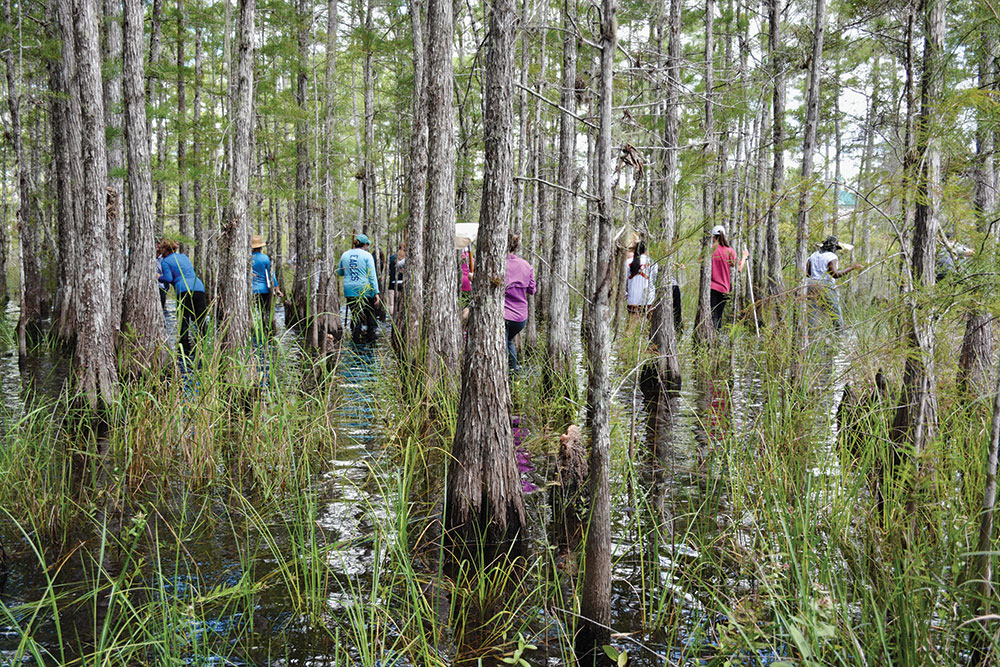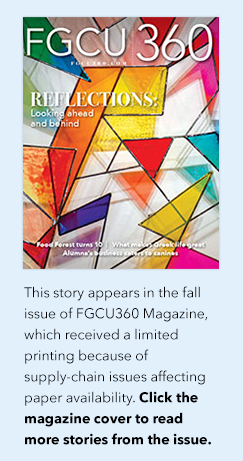The course brings lessons in the environment and our impacts as citizens and is a direct indication of the substantial effect of the long-term benefits of exposure to science and sustainability.

Envisioned as environmental education and maintained over FGCU’s 25 years of existence, the course not only creates new knowledge but implements knowledge to foster change using living labs to teach and promote sustainability.
 Jessica Marcolini (’12, M.S., Environmental Studies) is an instructor in Sustainability, Service Learning, Civic Engagement and Environmental Science and leads a Colloquium class. Marcolini earned her undergraduate and master’s degrees at FGCU, focusing specifically on the outcomes of the University Colloquium and the value that FGCU students bring to their communities.
Jessica Marcolini (’12, M.S., Environmental Studies) is an instructor in Sustainability, Service Learning, Civic Engagement and Environmental Science and leads a Colloquium class. Marcolini earned her undergraduate and master’s degrees at FGCU, focusing specifically on the outcomes of the University Colloquium and the value that FGCU students bring to their communities.
“We look to meet students halfway, to identify commonalities and small changes that they can make in their own lives,” Marcolini said. “There is no one formula for gaining this type of awareness and making adjustments in our own actions.”
Marcolini said that feedback indicates that many students don’t see the immediate benefits of the course when they discover that it’s required.
Field trips to the CREW Sanctuary, Six Mile Cypress Slough, Lovers Key and various nature trails on campus sometimes bring them out of their comfort zone. But with service-learning projects like the “Dumpster dive,” in which students find, weigh and categorize waste on campus and uncover ideas for energy solutions, most graduates discover their experience in the Colloquium course opens their eyes and hearts to another way of looking at their personal approach. Often, reflections on the course describe it as a life-changing experience.
The ripple effect of immersive experiences that guide decision making and effect everyone’s sustainable choices is tough to quantify, but Marcolini said that the results of the University Colloquium over the span of a quarter century show an overwhelmingly positive response to the course, especially the fieldwork.